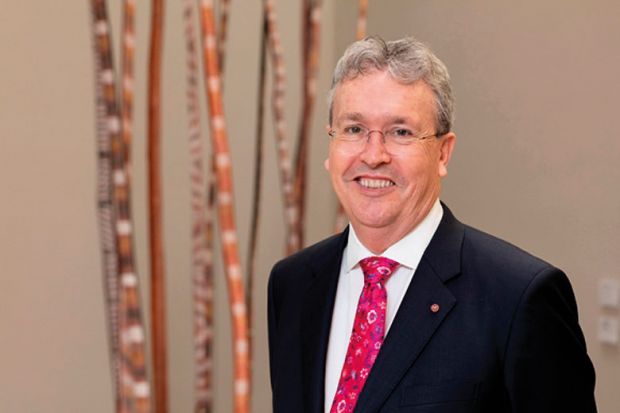Australian and British universities are exploring the possibility of setting up a bilateral research fund and a reciprocal visa for academic talent as the UK leaves the European Union.
These are among the ideas being considered by an expert advisory group made up of leaders from both sectors that met for the first time on 25 May, ahead of the start of Brexit negotiations.
A bilateral research fund would likely see both countries contribute towards grants, which would be allocated to researchers from the UK and Australia on the basis of excellence. A reciprocal academic visa, meanwhile, might offer advantages in mobility to scholars from the two countries at a time when the global trend is towards restrictions on immigration.
Other ideas under consideration include an increase in research collaborations between the two countries, and reciprocal access to data and infrastructure.
Paul Wellings, vice-chancellor of the University of Wollongong, said that Brexit – potentially bringing the end of free movement between the UK and the EU and the UK’s exit from the European research funding framework – offered Australia “a unique opportunity to enhance bilateral relations with the UK and to position itself to participate in any new third- or multi-party consortia”.
The initial goal, Professor Wellings told Times Higher Education, is to “paint a very big canvas” of what the sector would like, put forward proposals and then “follow up by looking at the political reality of getting the initiatives funded”. One possible output was “some sort of research priority framework”, he said.
“There are half a dozen areas that you can see from a research and impact point of view are mission-critical to both economies,” explained Professor Wellings, former vice-chancellor of Lancaster University, who highlighted energy futures, cybersecurity, biomedicine and health as likely areas of collaboration.
Given that the Australian and UK governments were now discussing a free-trade agreement, it might be possible to prioritise certain research areas, “structure plans for collaboration and embed them within an FTA”, Professor Wellings said.
Alec Cameron, vice-chancellor of Aston University, “did not expect the Australian FTA to completely replace the European arrangements”, in terms of collaboration and funding, but hoped that it might set a precedent for “the many FTAs the UK is likely to seek”.
European research funding had not only brought welcome money to British universities but had “fostered collaboration and internationalisation of their research effort”, Professor Cameron said.
Yet isn’t much of this likely to fall foul of tighter public funding regimes and government rhetoric around visas and immigration?
Discussions so far, responded Nicola Dandridge, chief executive of Universities UK, had focused on “identifying real synergies that could have a transformational impact on research and innovation”, not least in addressing global challenges, “rather than the mechanism of whether it’s a government funding pot or an FDA”.
As for visas, it was essential to identify “barriers holding back the movement of academic staff [who] support research” and then “make our case and show the evidence as to why particular objectives that benefit UK plc and Australia can be achieved only by having certain kinds of flexible visa rules”.
Register to continue
Why register?
- Registration is free and only takes a moment
- Once registered, you can read 3 articles a month
- Sign up for our newsletter
Subscribe
Or subscribe for unlimited access to:
- Unlimited access to news, views, insights & reviews
- Digital editions
- Digital access to THE’s university and college rankings analysis
Already registered or a current subscriber?








